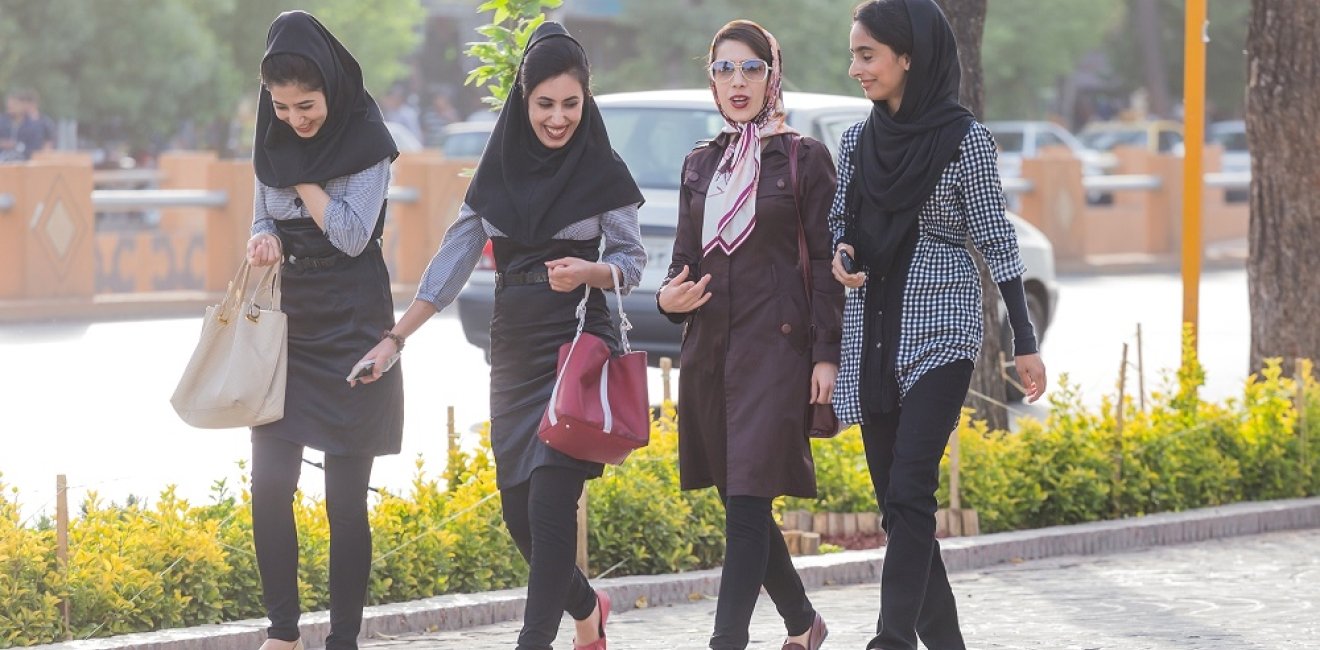
A blog of the Middle East Women's Initiative
A woman considered “disobedient,” or for no reason at all, could be beaten and injured; her children could be taken away from her.
Gender Based violence in Iran takes place at three levels: physical, legal and social, and these three levels are interconnected and intertwined. Physical violence against women is enabled by the existing culture and law, both religious and civic, and it manifests itself both in the private and the social spheres, and in interactions in both private and public spaces.
Women in Iran were traditionally referred to as “weaklings,” and were considered the wards and property of men who, in effect, were the masters of a woman’s destiny. A woman considered “disobedient,” or for no reason at all, could be beaten and injured; her children could be taken away from her. She might not be allowed to leave her home; she might be thrown out of the house. The honor killing of women by male next-of kin continues.
As women have become more educated and gained more independence, they have begun to push back against the physical violence perpetrated by their male relatives. Some speak publicly about the mistreatment they have suffered at the hands their husbands, brothers or fathers. Gone are the days when abused or battered women felt ashamed to come out in the open to tell their stories; and they reach out not only to family members, but to lawyers (mostly women lawyers) and also seek legal recourse. Some even go on social media with their stories.
Women have been fighting these abuses and lack of equality and protection under the law for a long time especially in the last four decades, where they continue to be treated as second class citizens.
Yet the laws are not necessarily on the side of battered and abused women. The courts, mostly run by clerics, often do not side with women complainants in such cases. The laws, particularly those relevant to family matters, are based on the sharia, Islamic law. The age of marriage for girls is 13, and polygamy under certain conditions is legal. Divorce remains the prerogative of men; women do have recourse to the courts, but the courts are generally unsympathetic. In the case of divorce or separation, child custody is most often given to the father. Even if both husband-and-wife work, the head of the household is still considered to be the man. Women have been fighting these abuses and lack of equality and protection under the law for a long time especially in the last four decades, where they continue to be treated as second class citizens.
The streets are also not hospitable to women. Incidents of acid-throwing on women to disfigure those considered improperly dressed, simply for being out in public, or due to personal vendettas have occurred on city streets; the verbal abuse of women by the morals police also takes place on the streets and in public view. Women’s rights are violated all the time. Women have to adhere to a strict dress code. In effect, the freedom to choose what they can wear has been taken away from them, and for years violating the dress code was punishable by 74 lashes. In recent years young women who dared to remove their headscarves in public were given long prison sentences. Men and women who are not related are not supposed to be seen together in public, although, today, this ordinance is ignored almost all the time. The revolutionary committees can at any time barge into a home, break-up gatherings and take those caught to court. The wrath of the morals police and the courts is directed primarily at women, not men.
Unless the government passes and implements laws that protect women from being abused and their rights violated, gender violence will not only continue but will increase, just as it has during the COVID-19 pandemic.
It is as if every man’s honor depends on the behavior of women in general. And yet—despite the social restrictions, the laws, the inhospitable courts and social traditions, women in Iran have been fighting a hostile government in a hostile environment and pushing against abuse and unequal treatment for the last forty years. Every time there is an incident of honor killing or acid-throwing or stoning, there is such an outcry in society, that the government feels obligated to promise to pass the necessary laws to protect women. Once the dust has settled, the law never sees the light of day until the next incident. Unless the government passes and implements laws that protect women from being abused and their rights violated, gender violence will not only continue but will increase, just as it has during the COVID-19 pandemic.
Once and for all the honor of the family should not depend on whether a woman shows a bit of hair, talks to a stranger, leaves her domicile, desires to work, or wants to live as a single person in charge of her own life and destiny.
This blog series is part of the Wilson Center series exploring the many facets of gender-based violence around the world, in parallel with the 16 Days of Activism against Gender-Based Violence that runs from November 25 – December 10, 2020.

Author


Middle East Program
The Wilson Center’s Middle East Program serves as a crucial resource for the policymaking community and beyond, providing analyses and research that helps inform US foreign policymaking, stimulates public debate, and expands knowledge about issues in the wider Middle East and North Africa (MENA) region. Read more


Middle East Women's Initiative
The Middle East Women's Initiative (MEWI) promotes the empowerment of women in the region through an open and inclusive dialogue with women leaders from the Middle East and continuous research. Read more

Explore More in Enheduanna
Browse Enheduanna
Women are the Catalysts for Change in Lebanon

How Education Can Empower Young Women in MENA


